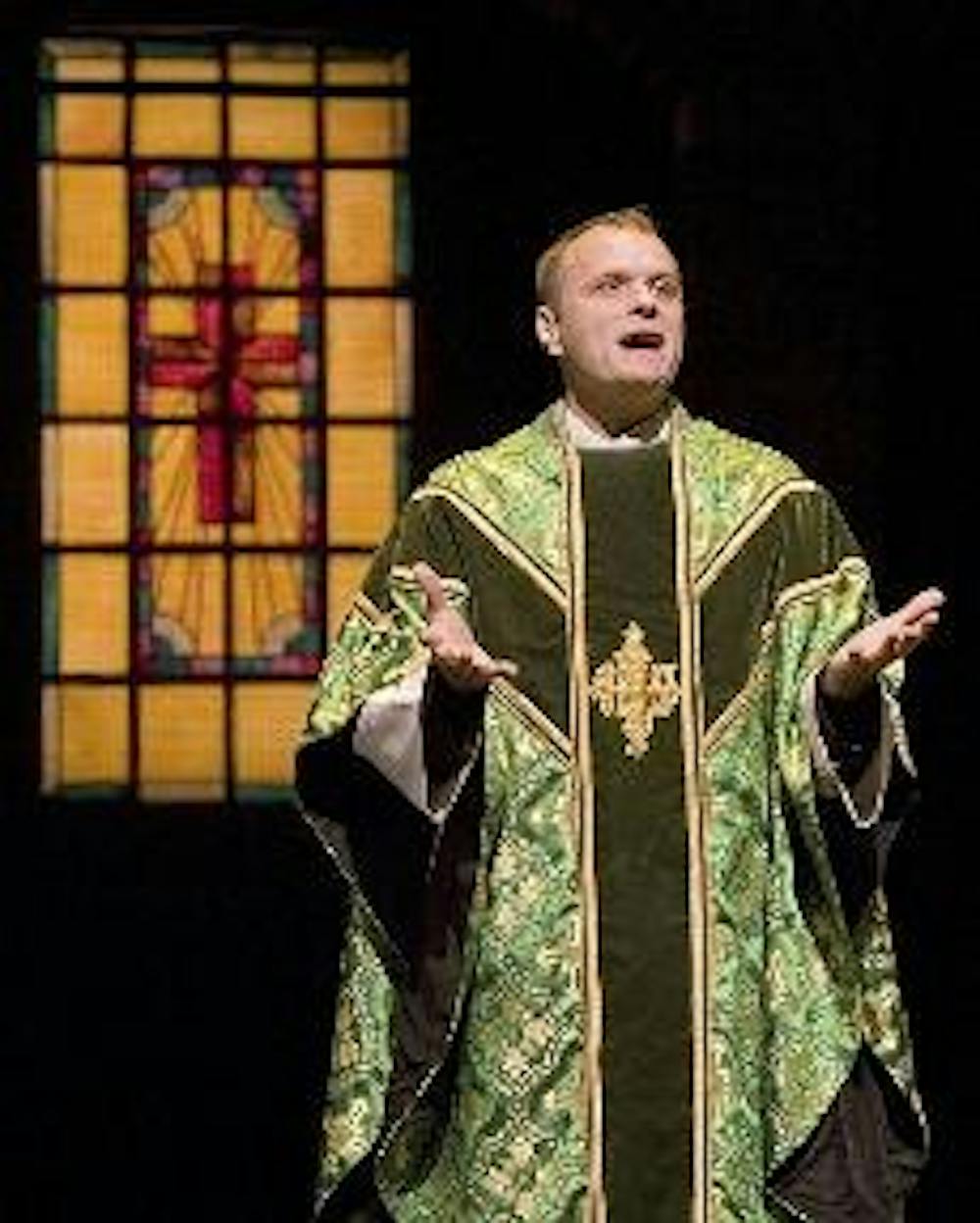According to John Patrick Shanley, the author of the Tony Award- and Pulitzer Prize-winning play "DOUBT," there are two predominant ways of dealing in America. "There is the culture of doubt, and there is the culture of dogma," Shanley writes.
This is the challenge he presents to audiences in his theatrical tour-de-force. Set in a Bronx Catholic school in 1964, the play tackles morality, race and homosexuality, and does so without proselytizing or attempting to convince the audience of a certain opinion or outcome.
In fact, Shanley said he wants nothing more than for viewers to remain uncertain when they leave the theater. Instead, his brilliant writing encourages the audience to embrace that initial moment of doubt, because it is that feeling that requires action and allows for change.
"Doubt requires more courage than conviction does, and more energy," Shanley said. "It is the most dangerous, important and ongoing experience of life. When trust is the order of the day, predators are free to plunder."
The play centers on Sister Aloysius (Cherry Jones), a hard-nosed nun who believes in rules and her suspicions about Father Flynn (Chris McGarry) and whether his relationship with the school's first black student has become inappropriate.
Jones delivers an absolutely magnificent performance. She personifies the type of nun every Catholic child fears - suspicious, sarcastic and always one step ahead. She is terrifying, persistent and convincing in her certainty that Flynn has done something improper. She quickly persuades the audience's collective mind to believe her logic, even with her complete lack of evidence.
McGarry perfectly counters her accusations. Personable and charismatic, he does a fantastic job of capturing that special something that all leaders have and, with it, the audience's heart. His sermons are enlightening, his denials fervent and his smile kind. No one could want to think badly about this man.
Each tense exchange between McGarry and Jones forces the audience to switch sides as new information comes to light.
Young Sister James (Lisa Joyce) is the embodiment of that confusion in the play. She is the perfect foil to Sister Aloysius's harsh realities and Father Flynn's warm idealism. It is her character that presents the moral difficulty in the play: If one is sure that something improper is happening but has no evidence, does a person have a responsibility, or even a right, to take action? Or should one leave it be and wish for the best until there is some kind of proof?
In the end, the audience is left completely unsure of whether Flynn was guilty, and that is exactly the way it should be. That feeling places the burden on each audience member to figure out what they believe, although no one can ever be entirely sure.
Although the play addresses heavy subjects, it somehow manages to strike a balance with enough humor and intellect to ensure the audience never emotionally disengages. It is easy to care about each of the characters and easy to believe them. However, it is nearly impossible to choose sides.
Shanley is quick to remind viewers that they shouldn't have to.
"Responsible, thinking people do not lead a yes-or-no existence," Shanley said. "Responsible, thinking people do not have to reduce complicated subjects down to 'for' or 'against.'"
This is especially appropriate advice, given the current political debates about Iraq, abortion and gay marriage, where people are so often forced to pick one side and think in black and white, even though the real world is full of shades of gray.
"DOUBT" is hilarious, heartwrenching and thoughtful, and probably the best play of the year. It is the kind of play that people go to the theatre for and the kind of play that everyone should see. Of that, there is no doubt.





